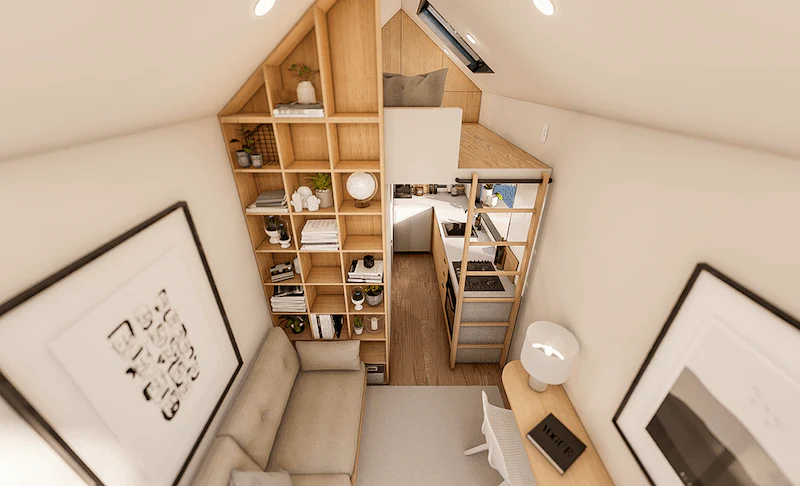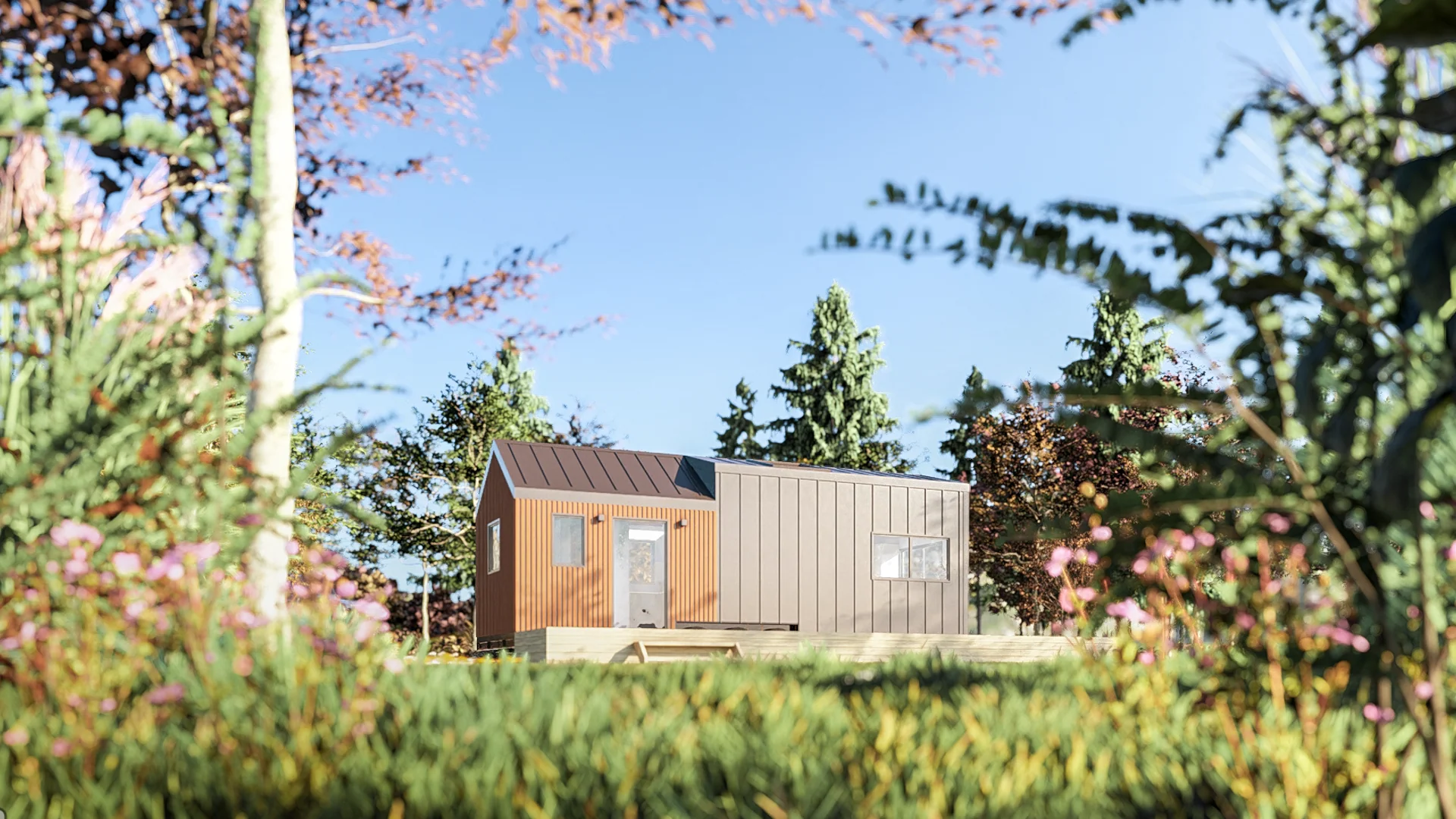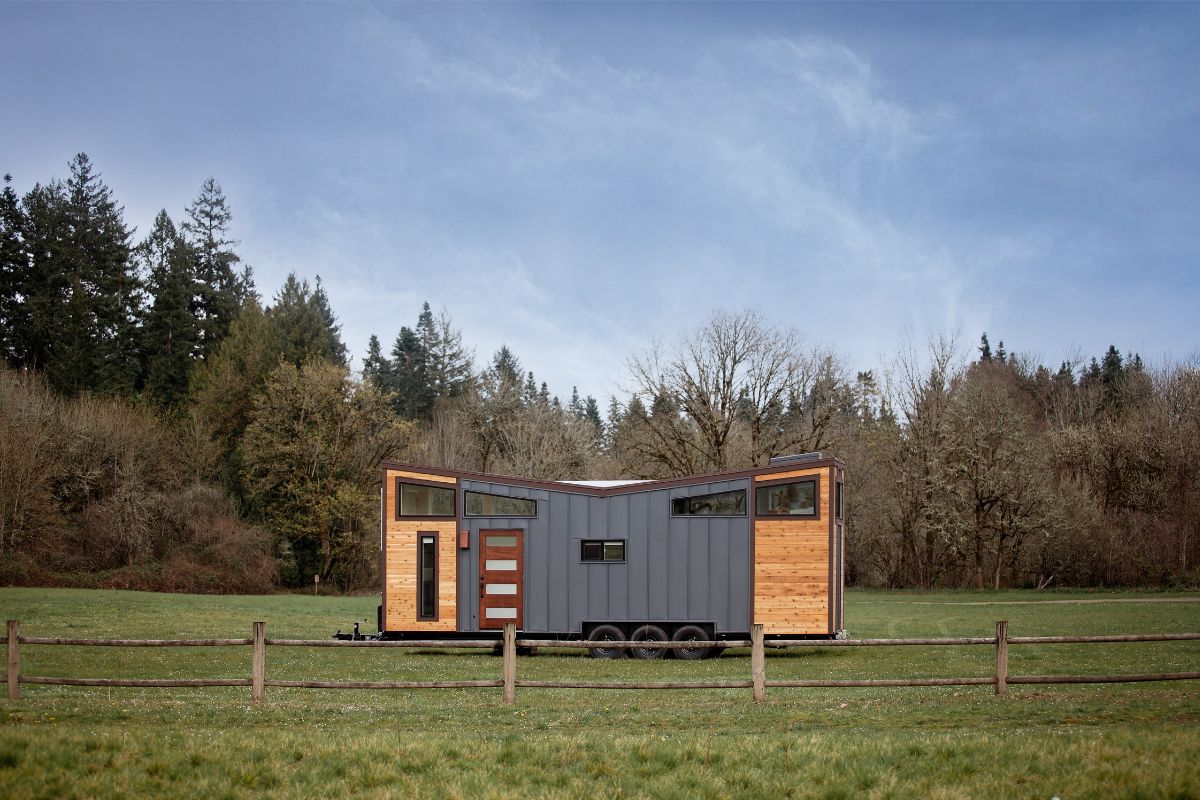Wisconsin Tiny Home Rules & Regulations (Explained!)

In recent years, Wisconsin state has become a hub for the tiny home movement, where dreams of minimalistic living merge with the tranquility of nature.
However, before you hitch your dreams to a tiny home on wheels or settle into a cozy little house in the state, you must know the rules and regulations governing these houses.
Tiny houses are legal in Wisconsin if they are built following the state’s building codes and zoning regulations. Each municipality in the state has its own rules regarding tiny homes, which you must follow as well.
So, it's crucial to research and understand the specific laws in the area where you plan to reside.
Furthermore, the state has been slow to adopt laws governing tiny homes. Permanent structures and tiny houses on wheels (THOWs) have different regulatory requirements, making navigating the regulatory landscape tricky.
In this post, we will unravel these complexities and shed light on everything you need to know to navigate the tiny home world in the beautiful state of Wisconsin.
Are tiny houses legal in Wisconsin?
The straightforward answer to this question is yes! Tiny homes are legal in the great state of Wisconsin. However, you need to know a few crucial details before you embark on your small home adventure in America's Dairyland.
Although Wisconsin accommodates tiny houses, their legality depends on various factors.
These homes may fall under different regulations, such as those governing recreational vehicles (RVs) or campgrounds.
What kind of tiny houses are permitted in Wisconsin?
Wisconsin has notoriously slowly embraced the tiny home revolution with open arms. You will find that both permanent and mobile small homes have their place in the legal landscape.
It is worth reiterating here that each municipality in the state may have different rules for different types of tiny homes in the state.
Are tiny houses on foundations permitted in Wisconsin?
The state permits the construction of tiny houses on foundations, provided the structure meets the state's building codes and zoning regulations for residential structures.
As a general rule, you should consult The Uniform Dwelling Code (UDC) to get the complete picture of the legality of your tiny home.
Are tiny houses on wheels permitted in Wisconsin?
Wisconsin also accommodates tiny houses on wheels, adding a dash of wanderlust to the mix. While specific regulations may differ for these mobile abodes, as they can fall under the recreational vehicle (RV) or campground guidelines, you still have the freedom to embrace life on the move.

What requirements must a tiny house meet to comply with Wisconsin's building codes?
Wisconsin Uniform Dwelling Code decides the state's construction, safety, and habitability standards.
These codes cover various aspects such as structural integrity, fire safety, electrical systems, plumbing, and accessibility of tiny homes constructed within the state boundaries.
The state’s building codes can vary depending on the type of your tiny home:
Rules for permanent structures
Permanent tiny houses in Wisconsin must meet specific requirements to comply with the state's codes, even if they are located in tiny house communities.
Here are some key considerations:
Foundation and structural stability
A permanent tiny house in Wisconsin must have a stable foundation that meets the state’s construction codes requirements.
Depending on the design and local regulations, the foundation can be a traditional concrete slab, crawlspace, or piers.
Electrical systems
The electrical system in a tiny permanent house should comply with Wisconsin's electrical codes. It includes proper installation of wiring, outlets, switches, and fixtures and adhering to safety protocols for grounding and circuit protection.
Plumbing and water systems
If a tiny permanent house includes plumbing, it must have appropriately installed water supply lines, drainage systems, and fixtures. It must also comply with health and sanitation standards.
Fire safety
Permanent tiny houses should include appropriate smoke detectors, fire-rated materials in certain areas, proper clearance around heating sources, and accessible exits.
Rules for temporary tiny houses
In Wisconsin, temporary tiny houses are classified as recreational vehicles (RVs) and must follow different rules.
Here's what you need to know:
RV classification
If your tiny house on wheels is intended to be mobile and meets the criteria for an RV, it will need to comply with regulations for recreational vehicles.
These regulations cover safety standards, such as weight limits, dimensions, and equipment requirements.
Temporary accommodation
Recreational vehicles are typically designed for temporary living rather than permanent habitation. There are rules in place that govern the duration of occupancy and restrictions on where they can be parked.
Park model RVs
Park model RVs resemble tiny homes designed for longer-term stays. They may offer more amenities and resemble permanent structures but still fall under RV regulations.

Rules for transitional structures
Transitional structures, a hybrid of permanent and temporary tiny homes, have their considerations.
These structures are designed to be portable but may have additional requirements for compliance, such as:
Construction standards
Transitional structures must meet construction standards to ensure structural integrity and safety. These standards may vary depending on the specific classification of the transitional structure.
Permits and inspections
In many cases, transitional structures require building permits and inspections to ensure compliance with applicable tiny house regulations.
Local building departments will guide the specific requirements for permitting and inspections.
Mobility considerations
Transitional structures are designed to be easily movable, so factors such as anchoring systems, transportation methods, and securing mechanisms need to be addressed to ensure safe mobility.

What Wisconsin counties allow tiny houses?
County administration in Wisconsin has significant power when it comes to regulating tiny home construction. What is legal and what is not while constructing a tiny house is determined, for the most part, at the county level in the state.
Unfortunately, not all counties in the state welcome the tiny house revolution equally.
Here is a list of a few that make it easier to construct your tiny house:
- Dane County: Permits tiny houses with a foundation as an accessory Dwelling Unit (ADU). However, the ADU can be at most 150 square feet in area.
- Vernon County: They have tiny house laws that specifically address accessory dwelling units (ADUs), which can include tiny homes.
- Barron County: It is one of the most lenient counties for tiny homes in the state and also is home to the state’s first tiny house village.
Can you permanently live in a tiny house in Wisconsin?
If the tiny house is built on a permanent foundation and meets the building codes and zoning regulations for residential structures in Wisconsin, it can be considered a legal dwelling. You can permanently live in these houses.
Furthermore, Tiny House on Wheels (THOWs) less than 150 square feet are classified as “portable shelters” in Madison, and you can live permanently in them
How tiny can a house be in Wisconsin?
Wisconsin follows specific area regulations when it comes to tiny houses. A tiny house in the state must be a minimum of 120 square feet and contain at least one habitable room.
You should also note that some cities and counties have a minimum area requirement significantly higher than the state-wide building laws (150-200 square foot minimum in some counties).
Where can I build a tiny house in Wisconsin?
Several options exist when considering where to build a tiny house in Wisconsin.
Here are some potential locations where you can make a tiny house in Wisconsin:
- Private land: If you own a piece of private land in Wisconsin or have permission from the landowner, it is possible to build your tiny house there.
- Tiny house communities: Some areas in Wisconsin have dedicated tiny house communities or developments.
- Campgrounds and RV parks: Certain campgrounds and RV parks in Wisconsin allow long-term or extended stays.
- ADU-friendly areas: Some Wisconsin cities or towns like Madison have adopted tiny house laws allowing Accessory Dwelling Units (ADUs).
Do I have to pay property taxes for my tiny house?
If your tiny house is built on a foundation and meets the criteria of a permanent dwelling, it may be subject to property taxes similar to traditional homes.
In this case, the tiny house would be assessed as part of the overall property value, and property taxes would apply.
If your tiny house is considered personal property, similar to a recreational vehicle (RV), it may be subject to different tax regulations.
Can I build and put a tiny house in my backyard in Wisconsin?
In some counties and cities of Wisconsin, you can put a tiny house on your property as long as it is classified as an Accessory Dwelling Unit (ADU).
You must follow local zoning laws, construction codes, and applicable homeowner's association (HOA) rules.
Where can I park a tiny house on wheels in Wisconsin?
You can park your THOW in an RV park in Wisconsin. That said, each park may have its rules and local laws you must follow.
You can also park your THOW in someone’s backyard if they allow it in some counties.

How much does it cost to build a Tiny House in Wisconsin?
The average cost of building a tiny house in Wisconsin can range between $40,000 to $90,000.
That said, the price can be significantly higher depending on the type of house you are constructing and the location you are putting it in.
You may also like: Invest Smart and Build Your Home Fast: 6 Top Affordable Kit Houses.
Are there tiny home communities in Wisconsin?
Wisconsin is home to one of the best tiny house communities that offer unique living experiences for tiny house owners seeking a sense of community and a simpler lifestyle.
The Canoe Bay Escape Village is one such community located in the countryside near La Crosse. It features beautifully crafted tiny houses nestled amidst scenic landscapes, providing residents with a serene and eco-friendly environment.
Tiny house communities like the Canoe Bay Escape Village offer an opportunity to connect with like-minded individuals and enjoy the benefits of tiny house living in Wisconsin.

Takeaway: Learn the key tiny house rules in Wisconsin before moving into one
Navigating the rules and regulations surrounding tiny homes in Wisconsin is complex, but understanding the guidelines is crucial for anyone considering this alternative living option.
Information we covered about local zoning laws and building codes will help you determine suitable locations and comply with local tiny house laws when building your tiny home.
Armed with this information, we hope you will make informed decisions, embrace the tiny home revolution, and create the home of your dreams in the beautiful state of Wisconsin.
Ready to design your tiny home? Get great tips here: Decorating Your Tiny House: Key Things to Consider.









.jpg)